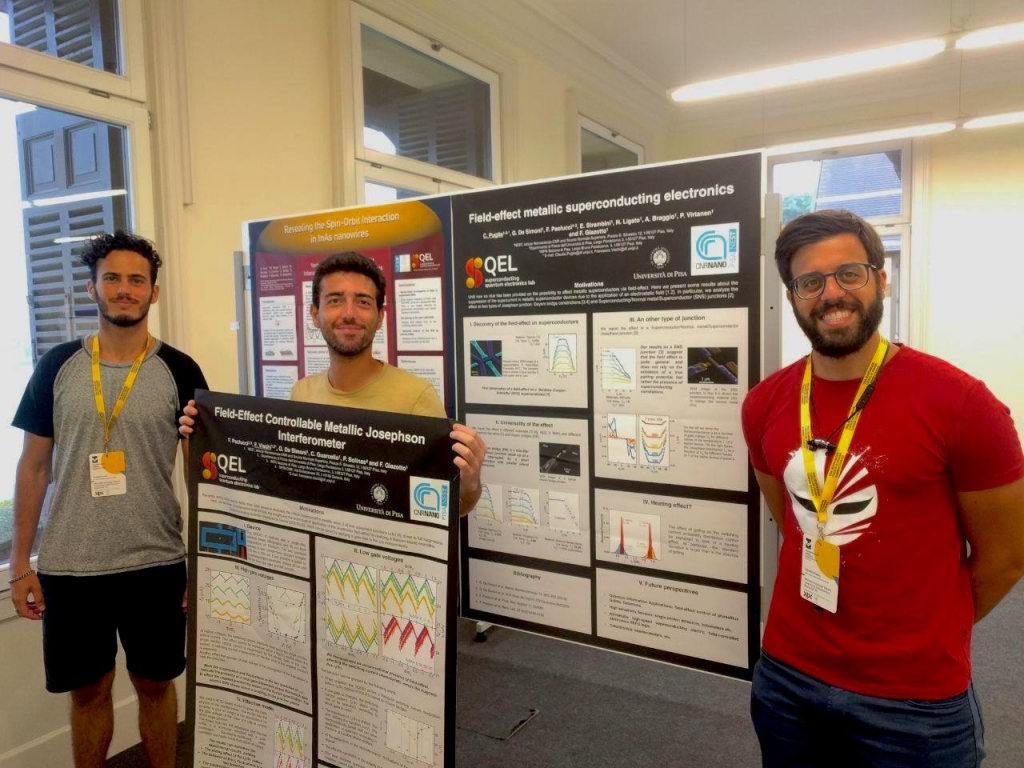From March 2021, SQEL is going to start a new research and innovation project SuperGate “Gate Tuneable Superconducting Quantum Electronics”, funded by the European Commission under the HORIZON-2020 FETOPEN program.
The project’s goal is to combine the powerful and energy-efficient superconductor technology with existing semiconductor technology and is based on the path-breaking discovery by the SQEL team that the superconductors can be controlled via electric field effect.
SuperGate is coordinated by the University of Konstanz and, apart from SQEL team institutes CNR-NANO and Scuola Normale Superiore di Pisa, involves CNR-SPIN, University of Salerno, Budapest University of Technology and Economics (HU), Delft University of Technology (NL), Chalmers University of Technology (SE) and SeeQC (IT).
The ultimate goal of SuperGate is to develop a new outperforming technology for superconducting logics that is completely based on electric field effect. The proposed technology promises a disruptive impact and radical transformations in the long term both in the world of supercomputing and concerning the design of innovative devices for quantum technologies.
Read more at the CNR-NANO press release.
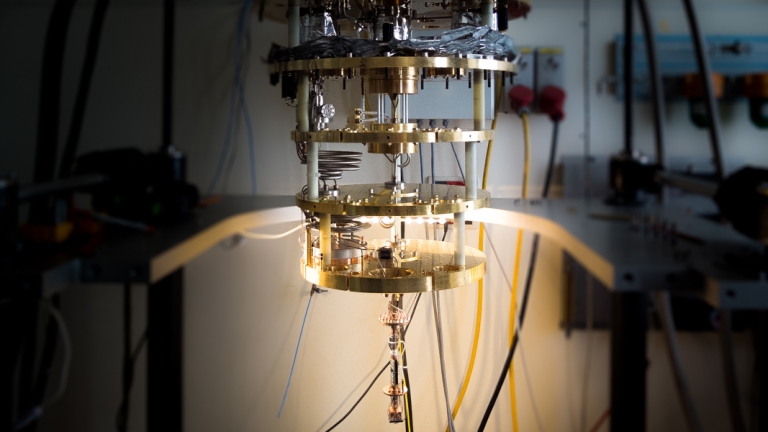
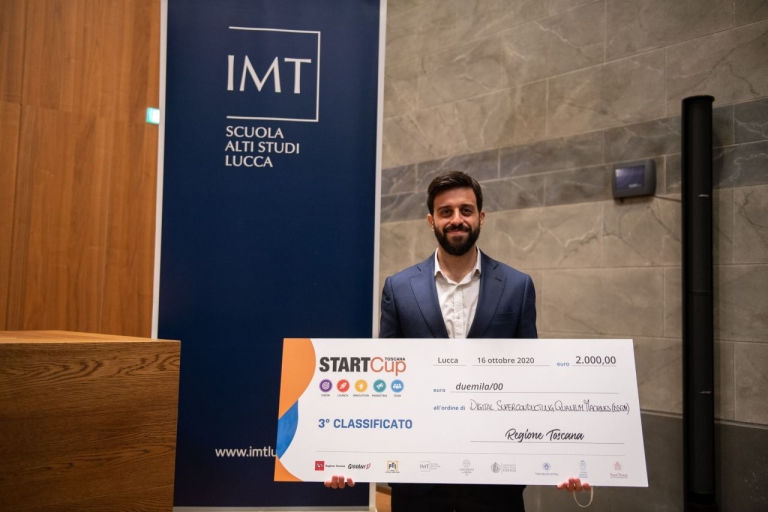 Claudio Puglia collects the award for the project DSQM
Claudio Puglia collects the award for the project DSQM 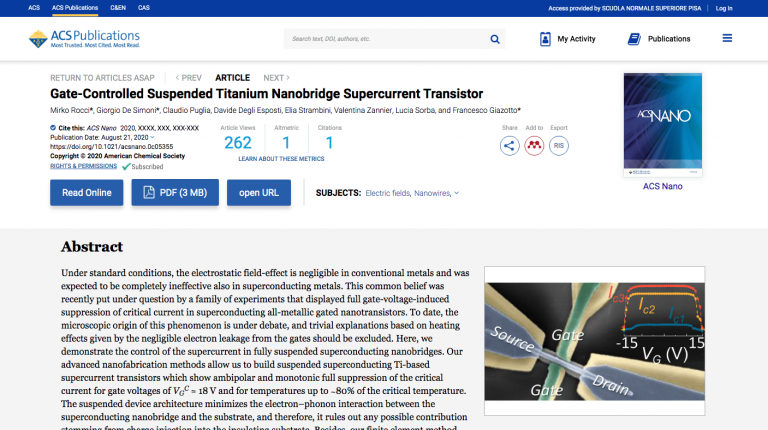 “Gate-Controlled Suspended Titanium Nanobridge Supercurrent Transistor” published on ACS Nano
“Gate-Controlled Suspended Titanium Nanobridge Supercurrent Transistor” published on ACS Nano 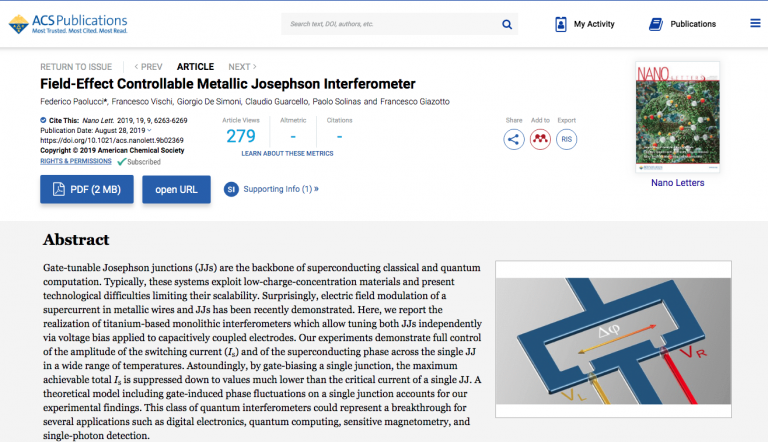 “Field-Effect Controllable Metallic Josephson Interferometer” published on Nano Letters
“Field-Effect Controllable Metallic Josephson Interferometer” published on Nano Letters 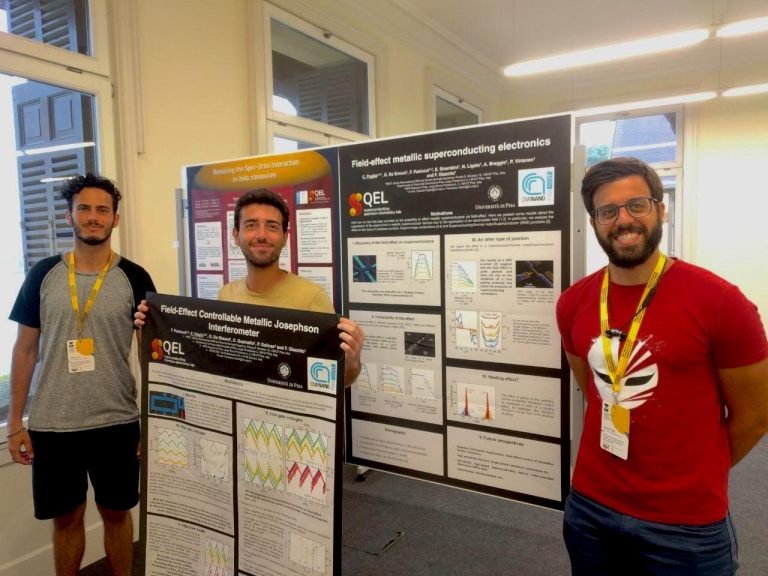 SQEL students at NanoQI’19
SQEL students at NanoQI’19 
